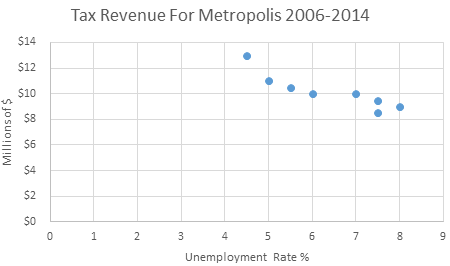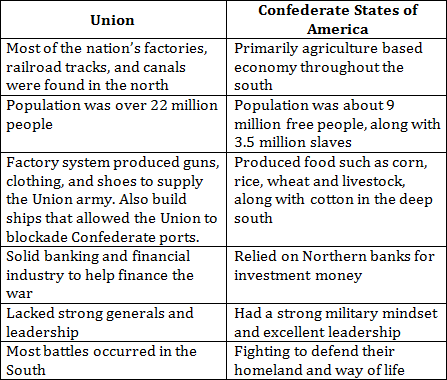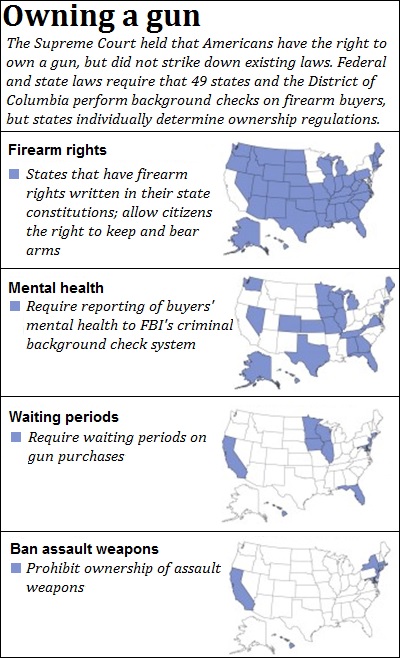This is the second of our free GED 2024 Social Studies practice tests. The GED social studies questions are fairly challenging and you will need to know some basic facts about government, politics, and history. Many of the questions will provide an excerpt from a speech or document, and the answer can often be found within the excerpt.
Congratulations - you have completed .
You scored %%SCORE%% out of %%TOTAL%%.
Your performance has been rated as %%RATING%%
Your answers are highlighted below.
Question 1 |
Under the US Constitution, which body has the sole authority to declare war?
The President | |
The U.S. Congress | |
The Secretary of Defense | |
The chairman of the Joint Chiefs of Staff |
Question 1 Explanation:
Only Congress has the authority to declare war, although it is the president who directs the conduct of the war. This is an example of the separation of powers outlined in the US Constitution.
Question 2 |
This question refers to the following graph:

Given the above information, which of the following statements is the most logical conclusion?
A higher unemployment rate leads to more tax revenue | |
A lower unemployment rate leads to more tax revenue | |
There is no relationship between unemployment and tax revenue | |
A higher unemployment rate leads to more tax fraud |
Question 2 Explanation:
The three highest unemployment rates correspond to the lowest tax revenue figures. Conversely, the three lowest unemployment rates line up with the years where tax revenue was the highest.
Question 3 |
Which of the following questions about NASA’s budget would be the most difficult to answer?
How does NASA spend its money? | |
Does the United States spend too much money on space exploration? | |
How much of an increase did NASA receive over last year’s budget? | |
How much do we spend on astronaut training annually? |
Question 3 Explanation:
All of the other answer choices represent questions that can be answered with factual information found in government records. Answer (B), however, represents a question that is seeking an opinion of how the United States allocates its funds. As such, there is no clear-cut, correct answer.
Question 4 |
Review the chart below for questions 4–6:

What was the primary goal of the Confederacy in fighting the Civil War?
To rejoin the United States | |
To take control of the federal government of the United States | |
To remain an independent country where slavery was permitted | |
To wipe out the Union and destroy the northern states |
Question 4 Explanation:
The Confederacy (South) never aimed to conquer the Union (North). The southern states were seeking to become an independent country with the ability to retain the laws and institutions they had come to rely upon (like slavery and the plantation economy).
Question 5 |

What is the most likely reason that the Confederate States of America won several major battles early in the Civil War?
The Confederacy had a great supply line to fortify their troops with guns and ammunition. | |
The Confederacy had a much larger army. | |
The Confederacy had superior military generals who outmaneuvered the Union troops. | |
The Confederacy produced more food. |
Question 5 Explanation:
Under the leadership of General Robert E. Lee, the Confederacy produced many stunning victories over the Union Army. While the Union Army had most of the military and financial advantages of the war, President Abraham Lincoln could not find a general able to string together a series of wins for the Union. Eventually, General Ulysses S. Grant would command the Union Army to victory.
Question 6 |

What would be the best title for the chart?
Comparing the advantages and disadvantages of the Union and Confederacy | |
Comparison of military supplies of the Union and Confederacy armies | |
Understanding why the Union won the Civil War | |
Understanding the advantages the Confederacy had over the Union |
Question 6 Explanation:
Each column of the chart presents a list of facts relating to the economic and military advantages and disadvantages of the Union and the Confederacy. These facts enable a direct comparison of each region.
Question 7 |
The following excerpt is from the November 1, 2008 edition of the New York Times:
While each of Florida’s 27 electoral delegates represents almost 480,000 eligible voters, each of the three delegates from Wyoming represents only 135,000 eligible voters. That makes a voter casting a presidential ballot in Wyoming three and a half times more influential than a voter in Florida.
This system, along with the winner-take-all practice used to allocate most states’ electoral votes, creates the potential for an absurd outcome. In the unlikely event that all 213 million eligible voters cast ballots, either John McCain or Barack Obama could win enough states to capture the White House with only 47.8 million strategically located votes. The presidency could be won with just 22 percent of the electorate’s support, only 16 percent of the entire population’s.
This system, along with the winner-take-all practice used to allocate most states’ electoral votes, creates the potential for an absurd outcome. In the unlikely event that all 213 million eligible voters cast ballots, either John McCain or Barack Obama could win enough states to capture the White House with only 47.8 million strategically located votes. The presidency could be won with just 22 percent of the electorate’s support, only 16 percent of the entire population’s.
Which of the following statements from the passage is an opinion and not a fact?
“While each of Florida’s 27 electoral delegates represents almost 480,000 eligible voters, each of the three delegates from Wyoming represents only 135,000 eligible voters.” | |
“That makes a voter casting a presidential ballot in Wyoming three and a half times more influential than a voter in Florida.” | |
“This system, along with the winner-take-all practice used to allocate most states’ electoral votes, creates the potential for an absurd outcome.” | |
“The presidency could be won with just 22 percent of the electorate’s support, only 16 percent of the entire population’s.” |
Question 7 Explanation:
The use of the word ‘absurd’ is a reflection of the author’s personal feelings about the Electoral College system. The other answer choices are all provable facts that are presented without any attached reference to the author’s judgement.
Question 8 |
This excerpt is from President Woodrow Wilson’s April 2, 1917, Address to Congress:
The present German submarine warfare against commerce is a warfare against mankind. It is a war against all nations. American ships have been sunk, American lives taken in ways which it has stirred us very deeply to learn of; but the ships and people of other neutral and friendly nations have been sunk and overwhelmed in the waters in the same way. There has been no discrimination. The challenge is to all mankind.
Each nation must decide for itself how it will meet it. The choice we make for ourselves must be made with a moderation of counsel and a temperateness of judgment befitting our character and our motives as a nation. We must put excited feeling away. Our motive will not be revenge or the victorious assertion of the physical might of the nation, but only the vindication of right, of human right, of which we are only a single champion.
Each nation must decide for itself how it will meet it. The choice we make for ourselves must be made with a moderation of counsel and a temperateness of judgment befitting our character and our motives as a nation. We must put excited feeling away. Our motive will not be revenge or the victorious assertion of the physical might of the nation, but only the vindication of right, of human right, of which we are only a single champion.
Which of the following statements is a logical inference based upon evidence from the passage?
President Wilson does not want the US to retaliate against the Germans. | |
President Wilson believes that the US should retaliate against the Germans regardless of what other countries decide. | |
President Wilson believes fear and anger should stir American support for war against Germany. | |
President Wilson wants to wait and see how other nations respond to the German attacks before declaring war. |
Question 8 Explanation:
When Wilson speaks of German "warfare against mankind," it is clear that he wants to retaliate. He also states that "Each nation must decide for itself..." which suggests that the US should not base its decision on that of other countries.
Question 9 |
Examine the chart and answer the questions that follow.

The “right to bear arms” is granted by which amendment of the United States Constitution?
First Amendment | |
Tenth Amendment | |
Fifth Amendment | |
Second Amendment |
Question 9 Explanation:
The Bill of Rights provides the first 10 amendments:
- Freedom of religion, speech, and the press
- The right to bear arms
- Freedom from housing soldiers
- Protection from unreasonable searches and seizures
- Right to a grand jury
- Rights of accused persons in criminal cases
- Rights in civil cases
- Excessive bail, fines, and punishments forbidden
- Rights reserved to the people
- Undelegated powers kept by the states and people
Question 10 |

According to the chart, which of the following states does not require a mental health background check to purchase a firearm?
California | |
Texas | |
Florida | |
Illinois |
Question 10 Explanation:
The second map, titled “Mental health,” shows which states require mental health background checks. California is not shaded, indicating that it does not require background checks.
Once you are finished, click the button below. Any items you have not completed will be marked incorrect.
There are 10 questions to complete.
|
List |
Next Practice Test:
GED Social Studies Practice Test 3 >>
